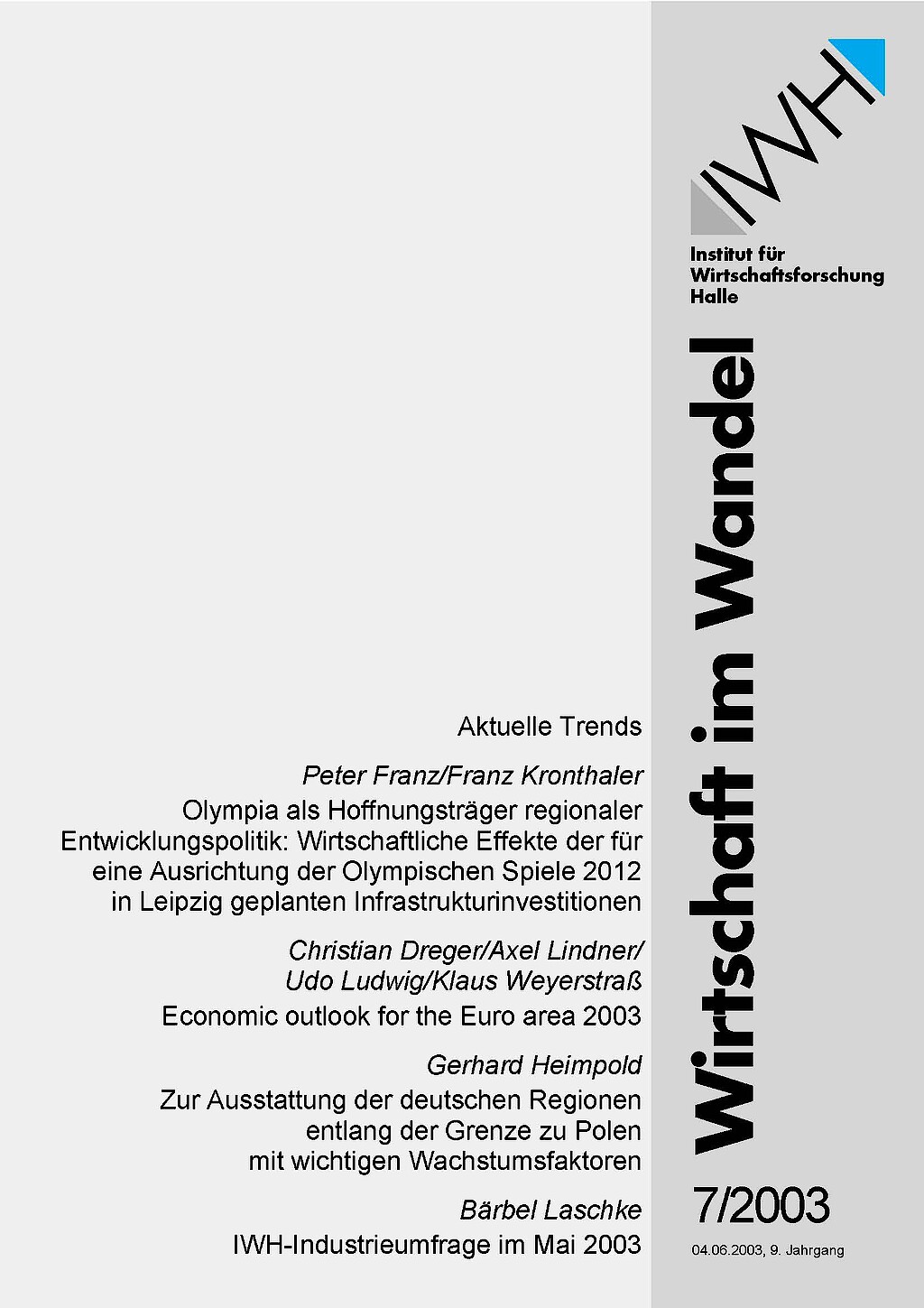The Olympic Games raise hopes for regional development policy: Economic effects of the infrastructure investments planned for the Olympic Games in 2012 in Leipzig
Peter Franz
Franz Kronthaler
in: Wirtschaft im Wandel,
No. 7,
2003
Abstract
Die Stadt Leipzig hat sich zusammen mit Chemnitz, Dresden, Halle und Riesa um die Austragung der Olympischen Spiele 2012 beworben und konnte sich bei der Entscheidung des Nationalen Olympischen Komitees am 12. April 2003 gegen ökonomisch weitaus stärkere westdeutsche Städte durchsetzen. Mit der Ausrichtung der Großveranstaltung erhoffen sich die Städte deutliche Entwicklungsimpulse. Die Studie geht der Frage nach, in welchem Ausmaß sich das ökonomische Entwicklungsniveau der fünf Partnerstädte durch eine solche sportliche Großveranstaltung verändern würde. Wichtige Ergebnisse: Hinsichtlich der unmittelbar mit dem Ausbau der Infrastruktur verbundenen Arbeitsplatzeffekte sind für einen Zeitraum von zehn Jahren etwa 3 500 zusätzliche Arbeitsplätze zu erwarten. Die bisher für die Olympiade geplanten Infrastrukturinvestitionen werden nur teilweise dazu beitragen, wichtige infrastrukturelle Engpässe in der Region zu beseitigen. Gleichwohl hätten die geplanten Infrastruktureinrichtungen zur Wirkung, dass die Olympia-Region Leipzig auch nach 2012 als Austragungsort von sportlichen Großveranstaltungen attraktiv bliebe.
read publication





